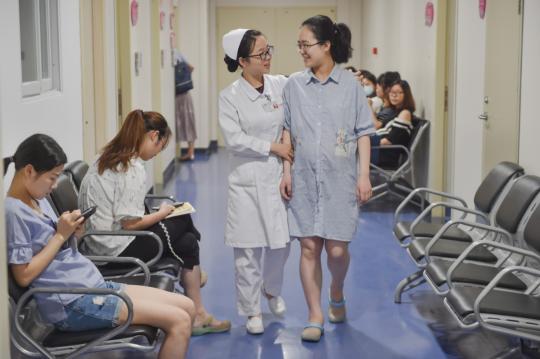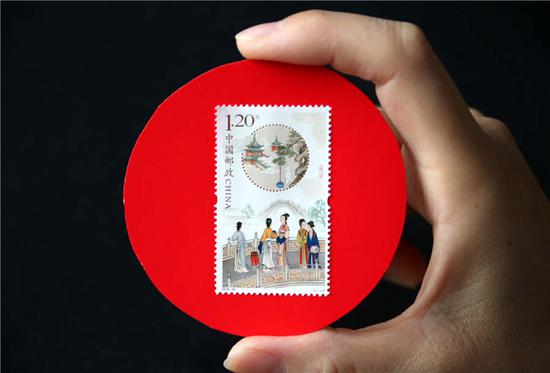
A nurse explains pregnancy care procedures to patients at a hospital in Fuzhou, capital of Fujian province. SONG WEIWEI/XINHUA
Zhou said NIPT covers three major chromosomal disorders: Down syndrome; Trisomy 13 and Trisomy 18 (which cause severe birth defects and hamper development); and irregularities in the number of sex chromosomes, which can lead to conditions such as Turner or Klinefelter syndromes, which result from missing or duplicated sex chromosomes.
"The amount of fetal DNA in the blood sample influences the accuracy of the test. Also, since the DNA being tested comes from the placenta and not directly from the fetus, there is a very, very small possibility that the DNA we detect is not that of the fetus, which would lead to an inaccurate result," he said.
According to Zhou, the mother's general health can also influence the accuracy of the test; for example, if she is overweight, has cancer, autoimmune disease or has had an organ transplant. In addition, the test is not recommended for women carrying more than one fetus.
Greater provision
To reduce the rate of birth defects, the National Development and Reform Commission's 13th Five-Year Plan (2016-2020) emphasizes the importance of improving medical services before and during pregnancy. The commission has set goals of raising the amount spent on testing to 800 million or 1 billion yuan ($116.5 million to $145.7 million) a year by 2020 and providing gene tests for half of the total newborn population.
"Lots of parents have very high expectations of NIPT. Most people focus on its safety and high accuracy rate, but they know little about the technology itself and are unaware of the potential for inaccurate results," Duan said.
Reports suggest that many women were given the all-clear by NIPT but later gave birth to children with physical or mental disabilities because the test was performed by a physician who either did not inform the parents of a possible false result or failed to conduct further tests, even after seeing ultrasound reports that indicated potential problems.
"Doctors play a crucial role in informing mothers and making the decision to conduct further tests, even if the NIPT result is negative," said Zhu Haiyan, director of the Prenatal Diagnostic Center at the PLA Navy General Hospital in Beijing.
Practical differences
NIPT has been used in the United States since 2011. In March 2016, the American College of Obstetricians and Gynecologists and the Society for Maternal-Fetal Medicine released two practice guideline bulletins to clarify the purposes of and differences between prenatal genetic screening and prenatal genetic diagnostic testing.
Because screening tests return both false-positive and false-negative results, they must be confirmed via diagnostic testing for chromosomal disorders, such as amniocentesis (tests of the fluid surrounding the fetus in the uterus) and sampling of chorionic villus (minute vessels that help form the border between maternal and fetal blood supplies).


















































